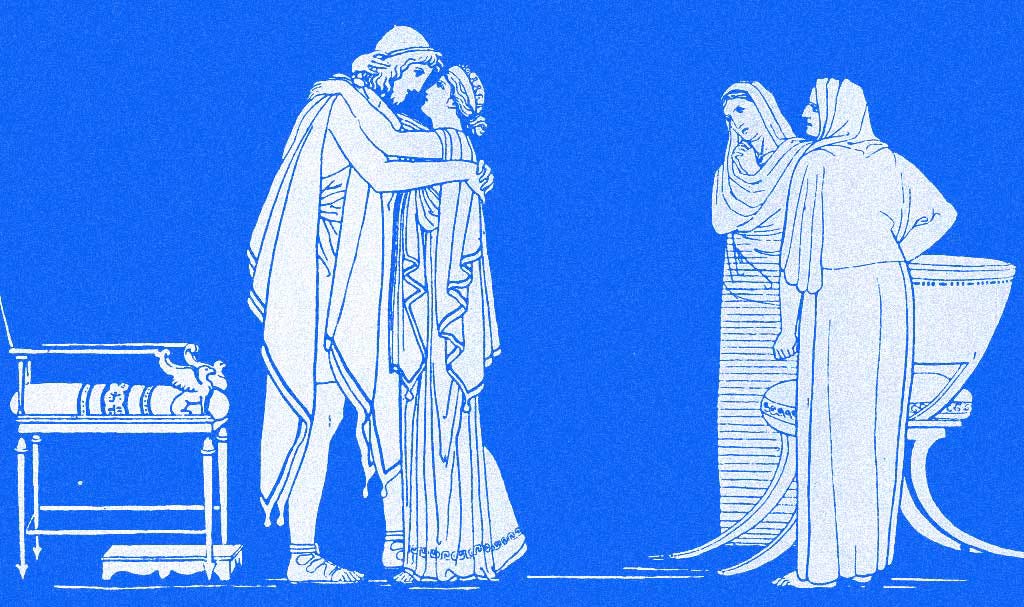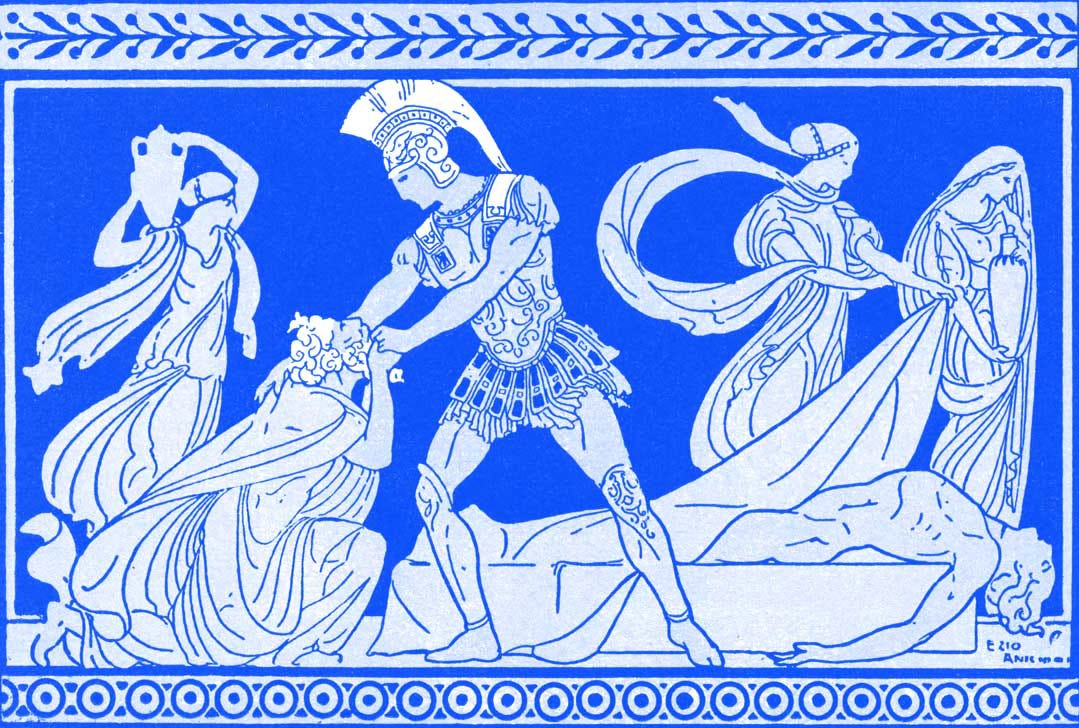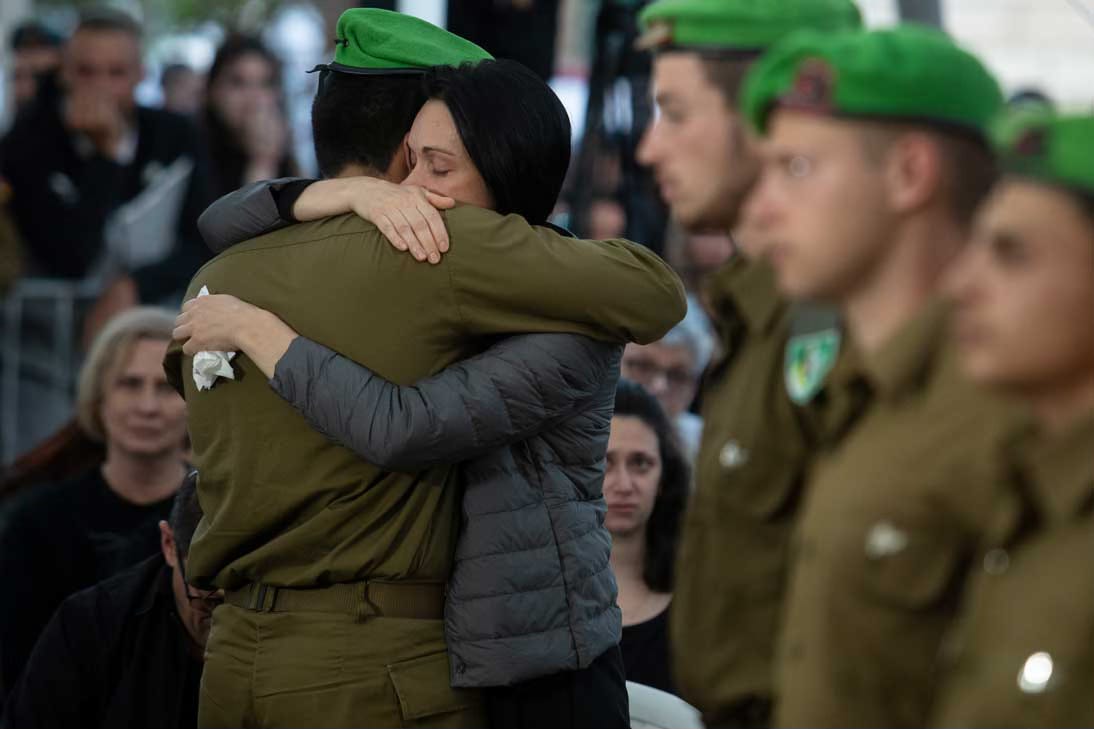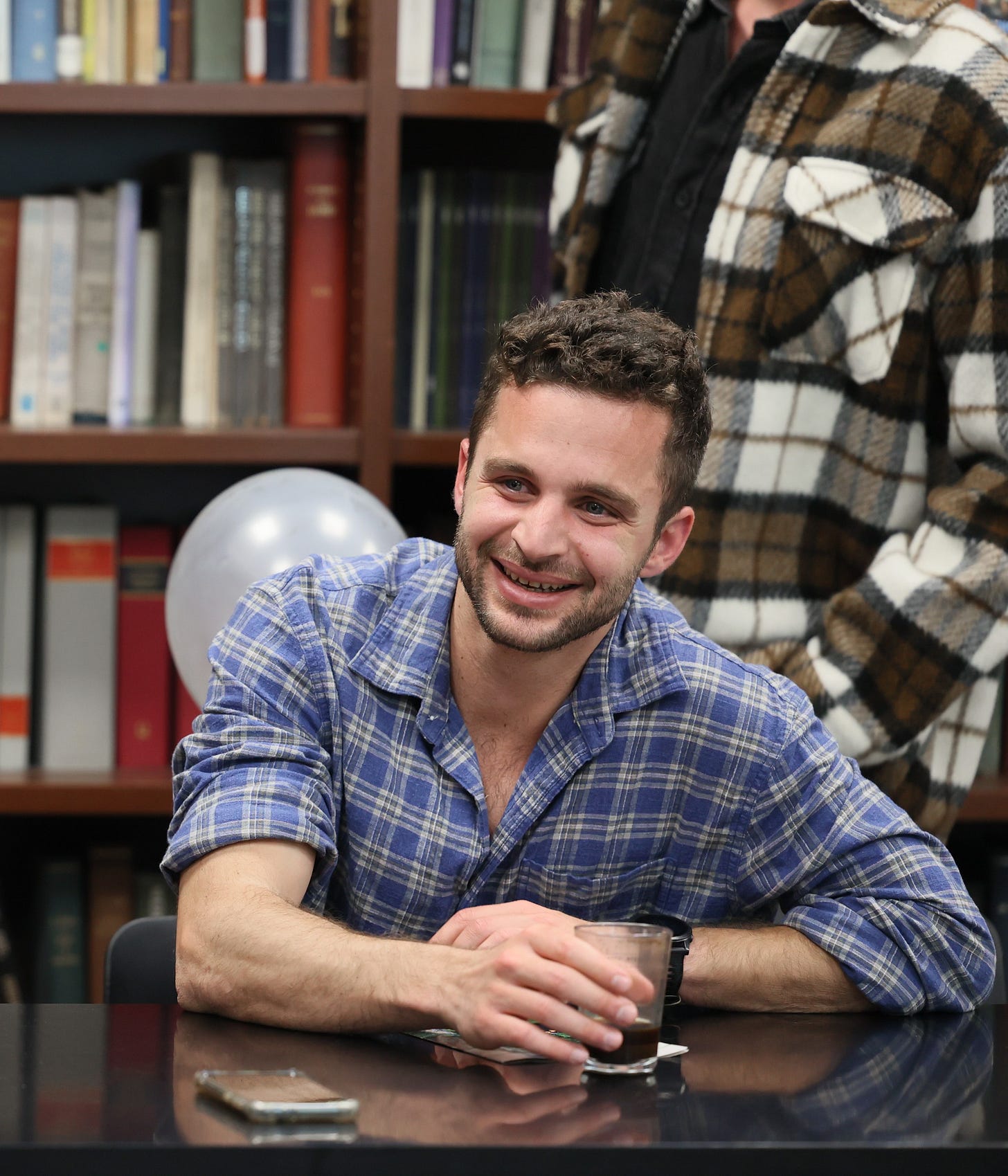Produced by ElevenLabs using AI narration
“Only that the generations of the children of Israel might know, to teach them war” (Judges 3:2)
Major Amir Sekori entered my class in October 2022. He was 30 years old, married with two daughters, and an officer in Israel Defense Forces’ (IDF) special forces. Like many officers, he took a leave to attend college, but unlike most who pursue professional studies, he chose to study for the soul and not just for the practical, attending Shalem College, Israel’s only liberal arts college. Like all students at Shalem, he began his studies reading Homer’s Iliad, the great epic about the Trojan War. By the time Amir took the seminar, I’d been teaching it for nine years.
Amir approached me after the second class and said he was frustrated. He couldn’t get into the Illiad. We had a short conversation, and by the next meeting he came prepared like a skilled warrior, not a young man enjoying a cultural experience. He learned the text as an officer would learn a map before navigating his company to its destination. I expected to meet him again on October 9, 2023, at the opening of his sophomore year, but instead, I stood before his grave and eulogized him. Two days earlier, Amir had led a team of soldiers toward the Gaza border communities that were being attacked by terrorists. He was one of the Israelis killed on October 7.
I used the eulogy to recall one of my Iliad classes in particular. In that class we discussed Hector, the Trojan army commander, and his farewell to his wife and young son as he prepares to return to battle. He is dressed in armor, with a helmet that conceals his face. His wife pleads with him: “Stay here, lest you make your son an orphan and your wife a widow.” He refuses. He knows that his army will be defeated, but he will not stay behind: “I was raised for courage, and to fight at all times in the front ranks of the Trojans,” he says. Hector turns to bid farewell to his son, who recoils at the sight of his warrior father. The Trojan commander removes his helmet, reveals his face, and cradles his son in his arms. Now he says different things: He is full of hope for victory and envisions a great future for his son. Hector is both a warrior and a family man. When he wears the helmet he speaks as a warrior, committed to collective values even at the cost of his life. When he removes it, the man and the father are revealed.
“Amir knew how to wear the helmet and remove it,” I said. “For 12 years, since finishing high school, he wore the helmet and was a respected fighter and commander. When he removed it a year ago, a wonderful person, loving father, and diligent student was revealed. Unfortunately, due to the terrible circumstances forced upon us, Amir had to put on the helmet again and leave us.”
We opened the 2023–2024 academic year four months late. Because of the war, more than half our students were drafted for reserve military service, and we wanted to wait for them to return. When we finally started reading the Iliad together, it was different. The students returning from war made clear to me what I had intuitively grasped in Amir’s eulogy: The Iliad is a painfully relevant book.
The Iliad describes the outbreak of Achilles’s wild rage following the death of his best friend, Patroclus. Like many comrades in arms, Achilles believes Patroclus is the better of the two and that he—Achilles—should have been the one to die. Following his friend’s death, Achilles returns to battle and behaves ferociously, slaughtering dozens of Trojans and finally killing Hector, who killed Patroclus. Slaying Hector is not enough for Achilles; he then desecrates his corpse and refuses to grant him the last honor due to a warrior: a decent burial. Finally, Priam, the king of Troy and Hector’s father, comes to Achilles’s tent and asks him, in tears, to allow his son a proper burial. Moved to tears himself, Achilles accepts the request. Thus ends the story of Achilles’s wrath—not in heroic song or in victor’s glory, but in a human dialogue between the bereaved father and the killer of his son. With compassion for each other, the two men hold each other’s hands and accept their fragile humanity.
This year, for the first time, one of the students, a fighter who served in the reserves in Gaza, argued that the Iliad should be placed on the therapy bookshelf.
In the last class on the Iliad, I ask students: “What is the genre of this book? On which shelf would you place it in a bookstore?” My hope is that they will see it not as a hymn to war but as a tragedy—a story about men in situations that leave them no choice but to kill or be killed. This year, for the first time, one of the students, a fighter who served in the reserves in Gaza, argued that the Iliad should be placed on the therapy bookshelf. “There are many points in the book where you can see yourself,” he said. “It takes you through some kind of process where you manage to remember things that you maybe hid inside, and also in the end to connect everything together a bit.”
Another student, a fighter in an elite unit, approached me after the course ended and told me he had participated in several intensive combat rounds that he never spoke of in the processing sessions that followed. “I had no words,” he said, “but in the first processing session we conducted after I finished reading the Iliad, I spoke for the first time. I finally found the words to talk about my experiences.”
My student was well trained for combat but was never trained to recognize what war might do to his soul. He had learned the high moral values of the IDF—such as “the purity of arms,” meaning that soldiers should use their weapons and force only to the necessary extent and must maintain their humanity even during combat. But he learned nothing about the shocking violence required in combat situations. The Iliad gave him a deeper understanding of what human beings are capable of. The Illiad’s ending, with Achilles and Priam mourning together, gave him an opening for hope. Even from these depths, one can return to humanity.

We spent eight classes on the Iliad, and when we had completed it, I breathed a sigh of relief. I thought the difficult part was behind us. The Odyssey, which came next, had generally been less traumatic for the students: It deals with a man returning home to his wife and son. A simple story, right? His trip home from the Trojan War takes 10 years, and the first half of the book primarily deals with Odysseus’s adventures during his journey. But then Odysseus arrives at his island, Ithaca, and the pace of events slows down substantially. The rest of the book is dedicated to describing the week that begins with his arrival on the island’s shores and ends with his full recognition as its king. In these pages, Homer devotes considerable space to describing his meetings with his wife, Penelope, who waited for him for 20 years.
When Odysseus enters his home, he is disguised as a beggar. His wife is surrounded by dozens of violent young men who seek to conquer her heart and inherit their home. In the evening, after the suitors have left, Penelope and Odysseus speak intimately. She tells him openly about her pain in having her husband away for two decades, but he continues to pretend he is someone else. At this point in my class, the students are angry with him: “Why doesn’t he tell her the truth? How can he deceive her after everything she has suffered for him?” But one student who served in the war and was married understood Odysseus’s actions. “Even when I return home from Gaza and my wife asks me how it was, I lie,” he said. “I can’t tell her what I really went through and I’m not sure she’s capable of hearing it.”
The second time Odysseus and Penelope meet, he has revealed his identity and eliminated all the suitors. Penelope comes out to meet him joyfully, but upon seeing him she isn’t sure whether to approach him. Their son, Telemachus, cannot bear the standoff and scolds her. In the past, my students would always agree with Telemachus: “Why is she hardening her heart now?” This year they sided with Penelope. One of the students shared: “When my husband went on leave from Gaza for the first time, he sent me a text message and my heart burst with joy. He sent another text when he got off the bus and I suddenly felt distrust. When he stood at the doorway I froze. Is this the man I said goodbye to two months ago?”
Another student, who got married during the war, suggested that Penelope is consciously examining the returned Odysseus. In her own way, she too has been fighting for the past 20 years: initially raising a child alone and in recent years preserving the home and maintaining her independence against the pressure of suitors. Penelope wonders if the man who has now returned is worthy of her efforts?

“This thought occupied me during the war,” said my student. “I tried to act in a way that would justify my return, the worry and anxieties my wife experiences while waiting at home. I tried to see where, within my framework as a warrior on the battlefield, I could care for the person I would be the day after the war.”
At the course’s concluding session, one of the students said: “I always thought the Iliad was the difficult story. Only when I returned home from the war did I understand that The Odyssey is the real challenge. War is just preparation for the return.”
Coleman Ruiz, a former Tier One U.S. Navy SEAL joint task force commander, recounts that the tool that helped him cope with the process of returning to civilian life comes from Joseph Campbell’s formula for all great stories: the “hero’s journey.” The journey has three stages, each challenging in its own right: departure, initiation, and return. The journey begins with a crisis in society that causes the hero to embark on the path of trials. After successfully completing his initiation, he is called to return to society with the wisdom he has gained in order to contribute to its healing and growth. For many years I taught these ideas in my fantasy literature course, but I never thought about them in the context of warriors who left their homes to defend their country. The thought of our returning warriors as the third part of the hero’s journey significantly changed my perspective: The returnees need our help, but we need them no less.
Jonathan Shay, an American psychiatrist who treated Vietnam War veterans, argues that there are certain aspects of war’s impact on fighters’ psyches that Homer identifies better than today’s mental health professionals. I am not an expert on war or mental therapy, but teaching the Iliad and The Odyssey during the war made clear to me the unique ability of this ancient literature to give expression and framework, meaning and significance, to the experience of war and the return from it.

I always took pride in learning from my students, but honestly, how much could young people in their twenties really teach me about a book I’d read more than a dozen times? The war reversed the roles: Now they were truly teachers and I was the student.
In the past two years I learned things about the Iliad and The Odyssey that before the war I never understood. My students taught me so much more: They taught me about fear and love, courage and sacrifice, about personal coping and about the ability to act together despite disagreements. The journey of return is not only for the soldiers and their families but for all of Israeli society: We sent this generation into battle and we must ensure their return. Moreover, we have much to learn from them. The ancient stories provide a language that can help us all complete the journey.
Ido Hevroni (@IdoHevroni) is a professor at Shalem College in Jerusalem, where he is also the chair of the David and Judith Lobel Core Curriculum. He has been teaching the Iliad and The Odyssey since the institution’s opening in 2013. He is writing a book about teaching Homer in wartime.

